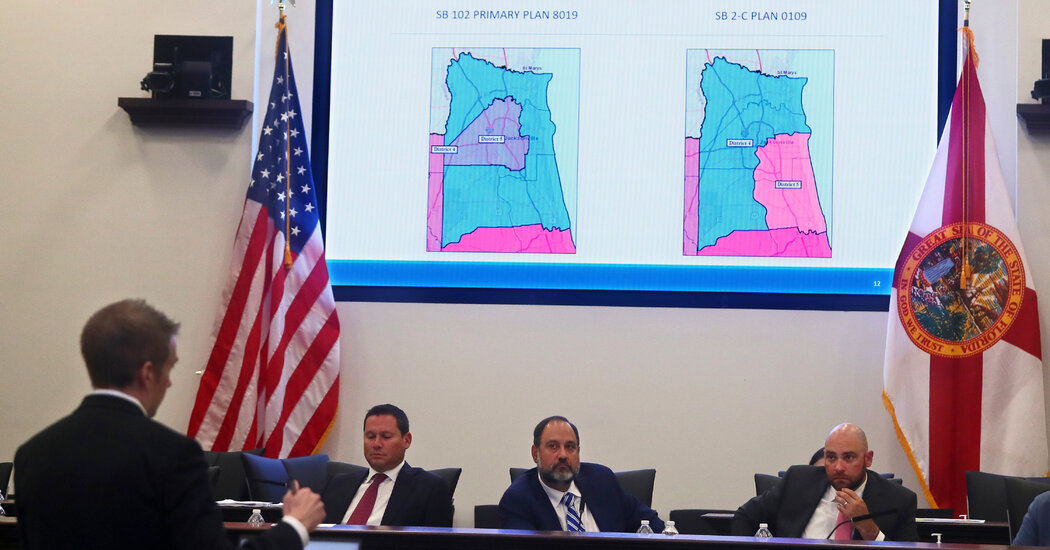Florida Supreme Court Turns Down DeSantis Voting Map Challenge

[ad_1]
Both parties claimed success in the redistricting.
Republicans noted that they had shored up 15 to 20 Republican incumbents in Congress by drawing districts that were more safely Republican. And while the House map includes more districts that voted for Mr. Biden than ones that supported Mr. Trump, Republicans also performed two to four percentage points better than Mr. Trump on average in 2020, according to data from the National Republican Redistricting Trust.
“We are going to have a huge offensive playing field this fall,” said Adam Kincaid, the organization’s executive director. “If you had told me coming into this redistricting cycle that we’d be able to make the gains that we’ve made with less control, with a significant funding disparity between us and the Democrats, I would have taken it in a minute.”
Democrats made their own claims. The National Democratic Redistricting Committee, the party’s primary redistricting organization, said its calculations showed that Democrats would hold a House majority in November if they won a popular vote majority of 2.1 percent nationwide. That would represent a vast improvement from 2012, when Mr. Obama’s win did not dislodge Republicans from control of the House.
“Democrats just straight up are in a stronger position than Republicans,” said Kelly Burton, the president of the party’s redistricting committee. “We have a higher baseline number of seats. And that is true no matter how you slice it.”
Such statements underscore how much of a zero-sum game redistricting has become as Democrats, who campaigned against partisan redistricting, chased the same kind of partisan advantage in states like New York and Illinois as Republicans have achieved in states like Texas and Wisconsin.
A decade of efforts by citizens and voting rights advocates to rein in partisan maps produced some results, though they were largely a wash. A ballot initiative undid a Republican gerrymander of the House map in Michigan, and a state court struck down a G.O.P. gerrymander in North Carolina. But courts also negated Democratic gerrymanders in New York and Maryland, and let Republican ones stand in Kansas and Ohio.
Most everywhere else, fierce partisanship was the order of the day, which Chris Christie, the former governor of New Jersey and former chairman of the National Republican Redistricting Trust, said was inherent in the system.
“It’s a political process,” he said. “It was intended by the framers to be a political process, and I don’t think you’ll ever be able to take the politics out of it.”
Nate Cohn contributed reporting.
[ad_2]




